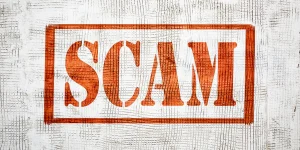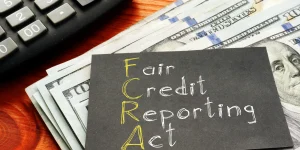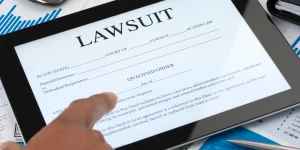When the phone starts ringing over and over about a debt you hardly remember, stress climbs fast. When letters arrive, your voicemail fills up, and people talk about lawsuits or wage garnishment, it can feel like your entire life is under attack. Many people go online and type the phrase Bountiful Collection Bureau when they are trying to figure out who is calling them and how to make it stop.
Behind that phrase there is usually a real collection agency working for a creditor, often a company such as Collection Bureau of America in Hayward, California, which collects medical, utility, and other consumer debts across several states.
The name you type into a search bar is less important than how the collector behaves. Even if the caller uses a different brand, if the conduct feels like Bountiful Collection Bureau harassment, you still have strong rights under federal law. This guide explains what that kind of harassment looks like, what the Fair Debt Collection Practices Act and Fair Credit Reporting Act do for you, and how to protect yourself step by step.
You will also see how Consumer Rights Law Firm PLLC can stand between you and the collector so you are not forced to handle every call and letter on your own.
What people usually mean when they say Bountiful Collection Bureau
When consumers search for Bountiful Collection Bureau, they are usually not talking about a city office in Utah. They are talking about a private collection agency or law firm that has been calling them about an old bill and that feels aggressive or unfair. The phrase becomes a shorthand for any collector that will not stop.
Directories and business filings show companies such as Collection Bureau of America operating from addresses at Eden Landing Road in Hayward, with post office box addresses in the same city. These firms describe themselves as collection agencies that send demand letters, make calls, report to credit bureaus, and file lawsuits when needed.
You may never see the real company name clearly on the caller display, especially if it uses shortened tags or local numbers. That confusion is exactly why people fall back on a generic label like Bountiful Collection Bureau when they describe their experience.
Is this a scam or a real debt collector

One reason you may be here is that you are wondering whether the calls are fake. Collection Bureau of America and similar agencies are real businesses that are licensed to collect debts for clients and often appear in Better Business Bureau listings and state corporation records.
That does not mean that every call you get using language similar to Bountiful Collection Bureau is legitimate. Scammers copy the names of known collectors because they know people are afraid of them. That is why your first step should always be to confirm who is actually behind the calls before you pay anything.
You should assume nothing. Treat every contact as possibly real and possibly fake until you have details that you can verify using independent sources. Verification is your first layer of protection.
How to verify who is really calling you
When you speak to someone who claims they are with a collection agency that reminds you of Bountiful Collection Bureau, stay calm and start gathering facts instead of arguing. Ask the caller for
- 👉 The exact legal name of the company
- 👉 The complete street address
- 👉 A direct phone number and extension
- 👉 The name of the original creditor
- 👉 Your account number or reference number
Write everything down. Then request that all information be sent to you in writing and end the call. Look up the company name and address you were given. For example, Collection Bureau of America lists a street address at two five nine five four Eden Landing Road in Hayward, California, and a post office box at five zero one three in the same city.
If the information from the caller does not match public records, do not pay and do not share sensitive details. If it does match, you can still take time to think, but at least you know you are dealing with a real company rather than a random scammer using the phrase Bountiful Collection Bureau as cover.
What harassment looks like in everyday life

Not every collection attempt is illegal. A single polite request for payment with clear information is allowed. Harassment begins when the collector uses pressure and fear instead of honest communication.
People who write about Bountiful Collection Bureau harassment often describe the same patterns you see with large agencies like Collection Bureau of America. Those patterns include
- ➡️ Calls many times in a short period
- ➡️ Calls very early in the morning or late at night
- ➡️ Threats of lawsuits or wage garnishment during the first contact
- ➡️ Refusal to explain the debt clearly
- ➡️ Rude or insulting language when you ask questions
- ➡️ Calls to family members or your workplace
Some reviews also mention that callers demand immediate payment by card or bank draft and refuse to give time to think or to check records.
If you see several of these signs together, it is reasonable to treat the situation as harassment and to use the tools the law gives you to make it stop.
Your rights under the Fair Debt Collection Practices Act
The Fair Debt Collection Practices Act, usually called the FDCPA, is a federal law that was created to eliminate abusive collection practices by debt collectors. It sets clear rules for what third party collectors can and cannot do when they chase consumer debts.
If the company that feels like Bountiful Collection Bureau is a third party agency collecting a personal debt, the FDCPA almost certainly applies. Under this law a collector
- ✅ Cannot call before eight in the morning or after nine in the evening in your time zone
- ✅ Cannot call over and over with the goal of annoying or abusing you
- ✅ Cannot use obscene language or insult you
- ✅ Cannot threaten to have you arrested for not paying
- ✅ Cannot misrepresent the amount you owe
- ✅ Cannot pretend to be a court or a government office
The law also gives you the right to receive a written notice shortly after the first contact. That notice must state the amount of the debt, the name of the creditor, and explain your right to dispute the debt in writing within a set time. When you dispute in writing, collection should pause until the agency sends validation.
If a collector that reminds you of Bountiful Collection Bureau ignores these rules, you may be able to sue in federal or state court and recover money damages along with attorney fees.
How the Fair Credit Reporting Act protects your credit

The Fair Credit Reporting Act, or FCRA, is another federal law that works together with the FDCPA. It focuses on how information appears in your credit files and how that information must be handled.
If a collector like Collection Bureau of America reports an account to the credit bureaus, that entry must be accurate and complete. You have the right to
- ➤ Obtain your credit reports from major bureaus
- ➤ See what debts are listed and by whom
- ➤ Dispute any information you believe is inaccurate or incomplete
- ➤ Have the bureau investigate your dispute
- ➤ Expect corrections or removal if the furnisher cannot verify the entry
Medical and other collection debts can seriously harm your score, and recent debates about whether medical debt should be reported at all show how controversial this area is.
If the collector behind your Bountiful Collection Bureau search has placed a wrong balance, wrong dates, or a duplicate entry on your reports, using your FCRA rights can be just as important as stopping the phone calls.
How to document everything
Once you suspect that you are facing Bountiful Collection Bureau style harassment, begin keeping a clear record. Documentation can turn your word against theirs into a solid case built on facts.
Create a log and record
- ➜ Date of each call or message
- ➜ Time and length
- ➜Number that appeared on your phone
- ➜ Name the caller used
- ➜ What was said, especially any threats or rude comments
Save letters, statements, and envelopes. Take screenshots of text messages and emails. Save voice messages when possible.
If you later speak with a lawyer or file a complaint with the or your state attorney general, this record will be powerful evidence that the collector behaved in ways that match or even exceed what people complain about when they talk about Bountiful Collection Bureau harassment.
How to demand validation of the debt
You do not have to accept a collector claim at face value. Under the FDCPA, once you receive the initial letter, you can send a written dispute and request validation.
In your letter
- ✔️ State that you dispute the debt or a portion of it
- ✔️ Ask for the name and address of the original creditor
- ✔️ Request an itemized statement of the balance
- ✔️ Ask for copies of any documents showing that you agreed to the debt
Send your letter by a method that gives you proof of delivery and keep a copy. Once the collector receives it, they should stop active collection while they investigate. If they continue calling daily and demanding payment without answering your questions, they may be violating the same federal rules that were created because of behavior very much like what people label Bountiful Collection Bureau.
Setting limits on calls and contact
Even when a debt is valid, endless calls can wreck your peace and even put your job at risk. The law gives you some control over where and when a collector may contact you.
Tell the agency
- 👉 That your employer does not allow personal calls at work, if that is true
- 👉 That certain hours are not acceptable
- 👉 That you prefer written communication
Then send a brief letter that repeats these instructions and mentions your account number. If the company continues to call you at work or at times you have said are off limits, those facts can support a harassment claim.
You may also send a broader letter asking the collector to stop contacting you entirely, except for narrow legal notices. Because that step can change the way the creditor responds, you should consider speaking with a lawyer before sending it to any agency that feels like Bountiful Collection Bureau in your life.
➡️ Learn More About How To Stop Allied Alliance Group Debt Collection Harassment
Checking and cleaning your credit reports
While you are dealing with calls and letters, do not forget your credit reports. Collection Bureau of America and similar agencies often report accounts they handle.
Get your reports from the major credit bureaus and look for
- ➡️ Collection entries you do not recognize
- ➡️ Wrong balances or wrong dates
- ➡️ Duplicates for the same debt
If you see errors, send written disputes to each bureau and include copies of any proof, such as payment records or letters from the collector. Under the FCRA the bureaus must investigate and either verify or correct the entry.
Cleaning up inaccurate information can help repair damage that began when the collector first appeared and pushed you to search for Bountiful Collection Bureau online.
When a lawsuit enters the picture

Some collection agencies work closely with law firms that file suits to collect unpaid accounts. If you receive a summons and complaint, this is more serious than a phone call. A default judgment can lead to wage garnishment or bank account levy, depending on your state.
If paperwork lists a creditor or a company you have never heard of, along with a law firm, do not assume it is a mistake. Old debts can be sold to debt buyers, who then hire lawyers, sometimes after earlier collection attempts that felt like Bountiful Collection Bureau pressure.
You should
- ➤ Read the complaint carefully
- ➤ Note the deadline for your answer
- ➤ Speak with a consumer rights lawyer as soon as you can
A lawyer may be able to challenge the evidence, raise defenses such as expired limitation periods, and even bring counterclaims if collection activity violated the FDCPA.
How Consumer Rights Law Firm PLLC can help you
You do not have to face collectors alone. Consumer Rights Law Firm PLLC focuses on representing people who are dealing with harassment, unfair credit reporting, and abusive collection lawsuits.
Here is how to reach the firm
Consumer Rights Law Firm PLLC
📌 133 Main Street Second Floor
North Andover Massachusetts 01845
📞 Phone 877 700 5790
📩 Email help@consumerlawfirmcenter.com
👤 Visit :Better Business Profile
When you contact Consumer Rights Law Firm PLLC, the team can
- 👉 Review your call logs, letters, and credit reports
- 👉 Explain how the FDCPA and FCRA apply to your situation
- 👉 Send letters demanding that the collector stop unlawful conduct
- 👉 Require documentation that proves any alleged debt
- 👉 Negotiate settlements on fair terms when you want to resolve a debt
- 👉 File suit to recover damages if the collector behaved in the same way people describe when they talk about Bountiful Collection Bureau harassment
Many federal consumer laws allow successful consumers to recover attorney fees from the collector, which can make it realistic to pursue your rights even when money is tight.
Success Stories
“What an amazing experience I had with Consumer Rights Law firm. I kept getting constant calls from a debt collector who was asking for someone I didn’t know. After explaining over and over I was not the person they were looking for, The calls still continued, it became frustrating and very annoying. I came across this firm and just called to talk to someone to see how I could get the calls to stop. I spoke to a gentleman that was very professional and very helpful. Not only did they get the calls to stop immediately, they were able to put some money in my pocket as well. Here’s the best thing, it cost me nothing for them to help me. They come highly recommended. Thank you Consumer Rights. Their expertise in negotiating settlements with debt collectors was invaluable.
“I had the pleasure of dealing with Consumer Rights Law Firm PLLC on 2 different occasions. The staff were very courteous and helpful, and they were familiar with the Collection Agencies in question. The harassment calls stopped, and I was even compensated. As a collection law firm, they provided exceptional legal assistance and ensured my rights were protected. I would recommend this company to anyone going through this type of harassment. A very satisfied customer.”
“I would highly recommend the Consumer Rights Law Firm to anybody that has been harassed! They were very professional and straightforward about my rights.”
Check out a links below for more information:
Massachusetts Attorney General
Frequently asked questions
✔️ What does Bountiful Collection Bureau usually refer to
It is a phrase people use online when they feel harassed by a collection agency and are not sure of the exact legal name of the company.
✔️ Is the collector behind Bountiful Collection Bureau always real
Often it is a real licensed agency, but scammers can also copy the name, so you must always verify address and phone details.
✔️ Can a collector like this call me at any time
No. Debt collectors cannot call before eight in the morning or after nine at night in your local time.
✔️ What if I do not recognize the debt
Send a written dispute and request validation asking for proof that the debt is yours and that the amount is correct.
Can they talk to my family or job about the debt
Collectors generally cannot share details of your debt with family or coworkers and must stop work calls if your employer forbids them.
✔️ What should I do if calls feel threatening
Write down every call, save messages, and talk with a consumer rights lawyer about possible violations of federal law.
✔️ Can I fix my credit if a collector reported wrong information
Yes. Use your Fair Credit Reporting Act rights to dispute errors with each credit bureau and demand correction or removal.
✔️ Do I need to talk to a collector on the phone
You can request communication in writing so you have a clear record and do not feel pressured during live calls.
✔️ Can I sue over Bountiful Collection Bureau style harassment
If a collector violates the FDCPA, you may be able to sue for statutory and actual damages plus attorney fees.
✔️ When should I contact Consumer Rights Law Firm PLLC
Reach out as soon as collection contact feels abusive, confusing, or legal papers arrive that you do not fully understand.
Final thoughts
The phrase Bountiful Collection Bureau has become a way for people to describe a very real fear that debt collectors want to take control of their lives. The truth is that collectors have power, but so do you.
By verifying who is calling, documenting every step, insisting on written proof, using your rights under the FDCPA and FCRA, and working with Consumer Rights Law Firm PLLC when needed, you can move from panic to a clear plan. You may not be able to change the past that led to the debt, but you can choose not to live with harassment in the present.







